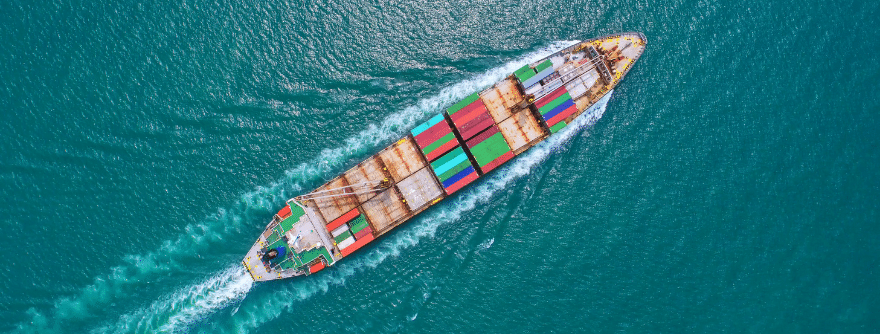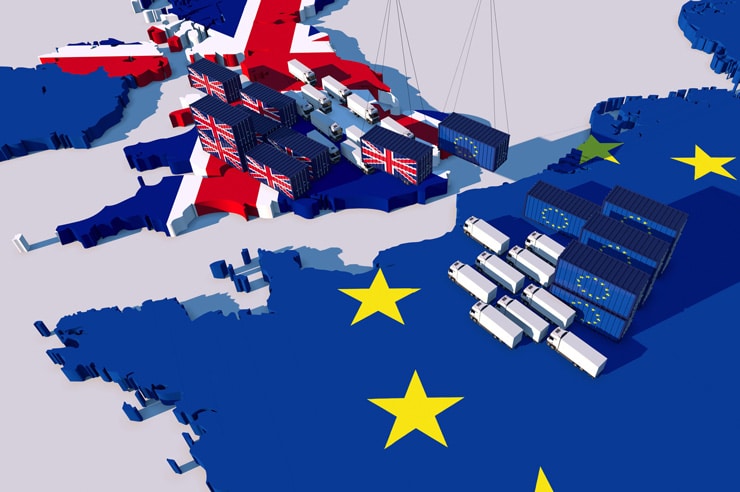New Trade Rules with the EU from 1 January 2022
09/10/2021 - 8 minutes readNew trade rules for full customs declarations and controls are going to be introduced from 1 January 2022.
As per these new trade rules, businesses will not be able to delay their customs declaration by up to 175 days without prior approval from HMRC. Until 31st December 2021, businesses can continue to choose to delay customs declarations as per relaxation on customs declarations that were announced last year to ease the administrative burden of Brexit on the full customs declaration.
If you’ve not made any declarations to HMRC for goods you’ve moved from the EU since January 2021, you need to start preparing now for this change.
Moving goods from the EU to GB during 2021
If you have moved goods or intend to move goods from the EU to GB during 2021, you must make customs declarations for these goods.
Most businesses use third-party agents or intermediaries, like customs agents, freight forwarding companies and fast parcel operators, to deal with customs processes including completing customs declarations.
If you are using one of these third-party agents or intermediaries, you should have agreed with them who will make the declaration.
HMRC have created a register of customs agents and fast parcel operators showing who is taking on new clients, and the services offered.

Importing non-controlled goods from EU free circulation to GB free circulation during 2021
EU free circulation goods have been produced/manufactured in the EU or have been declared to customs and customs duties paid. GB free circulation goods have been imported with the intention of paying the customs duties straight away.
You can choose to make a full declaration at the time the goods arrive in Great Britain (GB) or delay your declarations. You cannot use delayed declarations if you are importing controlled goods or the goods are not going into free circulation.
If you choose to delay your declaration, you’ll need to enter the goods in your records (known as an entry in declarants’ records or EIDR) and then provide full details in a supplementary declaration. You need to do this no later than 175 calendar days after the goods are entered in your records or the date your goods arrived in GB whichever is sooner. For example, if you imported goods on 29 April 2021, you must submit your supplementary declaration before 21 October 2021.
To help you make your declarations on time you can use the personal supplementary declaration planner which sets out the key actions you or your customs intermediary need to take. It’s available to download here.
If you have chosen to delay your declarations this means you will also delay paying any customs duty and import VAT (unless you’re VAT registered). Find out more here.
Moving controlled goods or trade rest of the world goods
Different rules apply to controlled goods, exports, rest of the world goods and the movement of goods into Northern Ireland.
Submitting your supplementary declarations
You must submit your supplementary import declaration no later than 175 calendar days of the date the goods were entered in your records or arrived in GB whichever is sooner.
If you are not using an intermediary to do this for you then you’ll need to prepare to make your supplementary declaration and make sure you have the correct authorisations and systems to submit your declarations. These can take up to 60 days.
Authorisations can make customs easier and cheaper for your business. You can use HMRC’s Trader tool to help identify which are suitable for your business.
You will need to submit your declarations electronically using the Customs Handling of Import and Export Freight system (CHIEF) or the Customs Declaration Service (CDS).
You’ll need to have access to a duty deferment account (DDA) to submit your first supplementary declarations. It works like a credit account where you pay HMRC duties accrued on imports via monthly Direct Debit, instead of paying for individual consignments immediately at import, or when released into free circulation or from an excise warehouse.
Some customs experts provide access to their DDA for their customers. So, speak to your agent or freight forwarder to see whether this is part of the service they offer. If not, or you are making your own customs declarations, you must apply for your DDA and Simplified Customs Declarations Processes authorisation in good time to meet the 175-day deadline for supplementary declarations.
Sending HMRC your supplementary declaration is your legal obligation as an importer
If you imported anything into GB between January and March 2021 and haven’t yet made your delayed declaration then these are now overdue, please call HMRC on 0300 322 9434 to discuss what you need to do next.
HMRC also advise you to call them as soon as possible if you think you will not be able to make customs declarations in time or believe you may have used delayed declarations incorrectly. HMRC will advise you on what to do next.
New Trade Rules From 1 January 2022 – What is changing
From 1 January 2022, when full customs controls are introduced, the option to delay declarations without authorisation from HMRC will no longer apply. You will need to choose to make full customs declarations when you import goods or to be authorised to make simplified declarations. You may want to use an intermediary to help you, but if you choose to make your own customs declarations you will need to start preparing now.
Your goods may not be allowed to travel to the UK if you have not made a customs declaration.
How can MCL Accountants help?
Contact MCL Accountants on 01702 593 029 if you have any queries on the New Trade Rules from 1 January 2022 or if you need any assistance with the preparation and submission of your business accounts or self-assessment tax returns to HMRC.


0 Comments